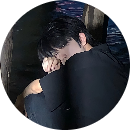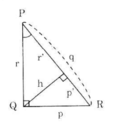Read the following passage and blacken the letter A, B, C, or D on your answer sheet to indicate the correct answer to the following questions.
A small but growing group of scholar, evolutionary, psychologists, are being to sketch the contours of the human mind as designed by natural selection. Some of them even anticipate the coming of a field called "mismatch theory", which would study maladies resulting from contrasts between the modern environment and the "ancestral environment". The one we were designed for.
There is no shortage of such maladies to study, Rates of depression have been doubling in some industrial countries roughly every 10 years. Suicide is the third most common cause of death among young adults, after car wrecks and homicides.
Evolutionary psychology is a long way from explaining all this with precision, but it is already shedding enough light to challenges some conventional wisdom. It suggests, for example, that the nostalgia for the nuclear family of the 1950s is in some way misguided - that the model family of husband at work and wife
at home is hardly a "natural" and healthful living arrangement, especially for the wives. Moreover, the bygone lifestyles that do look fairly natural in light of evolutionary psychology appear to have been eroded largely by commercialism. Perhaps the biggest surprise from evolutionary psychology it its depiction of the "animal" in us. Freud, and various thinkers since, saw "civilization" as an oppressive force that thwarts basic animal instincts and urges and transmutes them into psychopathology. However, evolutionary psychology suggests that a larger threat to metal health may be the way civilization thwarts civility. There is a gentler, kinder side of human nature, and it seems increasingly to be a victim of repression in modern society.
It can be inferred from the passage that evolutionary psychologists dislike nostalgia for the 1950s because
A. family life was seen to be unnatural.
B. It was an unhealthy time to live
C. the nuclear family provided an unsatisfactory lifestyle
D. women who wished to go out to work were misguided

















